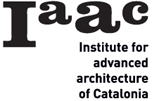As a Civil Engineer and MAA student I think that a project needs to be studied from the sum of all of it´s parts so that it can become a whole. Our role is to design according to the necessities of the environment and space that we are about to transform, not just by changing it, but by creating a better place for the users, without affecting the environment itself.
While designing a new project or development we have to think of how it will affect the environment in which we live. Changing the environment doesn’t necessarily mean to damage it, and this is the most important assignment of the constructor, think in terms of social welfare and positive impacts without letting aside the economic viability of the project.
I think that we could achieve this by combining the fast and slow thinking process that Daniel Kahneman presented. The fast thinking helps us take decisions regarding to our professional and personal life experiences, getting to simple and logical conclusions, while the slow thinking let us submerge into a more profound analysis of the problems that are presented to us during all the stages of the design and construction of a project.
The design of a project needs to grow up side by side with a business plan of it. By business plan I´m not just talking about economic terms (money), I´m talking about an analysis of the impacts that our design will have to the city, street or even the people who will live, work or pass through it. Taking into account the necessities that the project needs to cover, for example basic resources such as water, electricity and gas. What’s the scope of the city’s water resources? Can it satisfy the new projects needs or should a new investment on its infrastructure has to be done? This study has to be made for every part of the whole that I mentioned at the beginning, to transportation (public and private) coverage, academic coverage (number of schools and playfields near to the area), entertainment spaces, green areas, hospitals, supermarkets, etc.
Sometimes we focus too much in designing for the own interests of the project and what people will think when they see it, instead of designing, planning and building it in an economic, social and environmental feasible way, as a fast way of thinking (logic and intuition) would make us believe.
